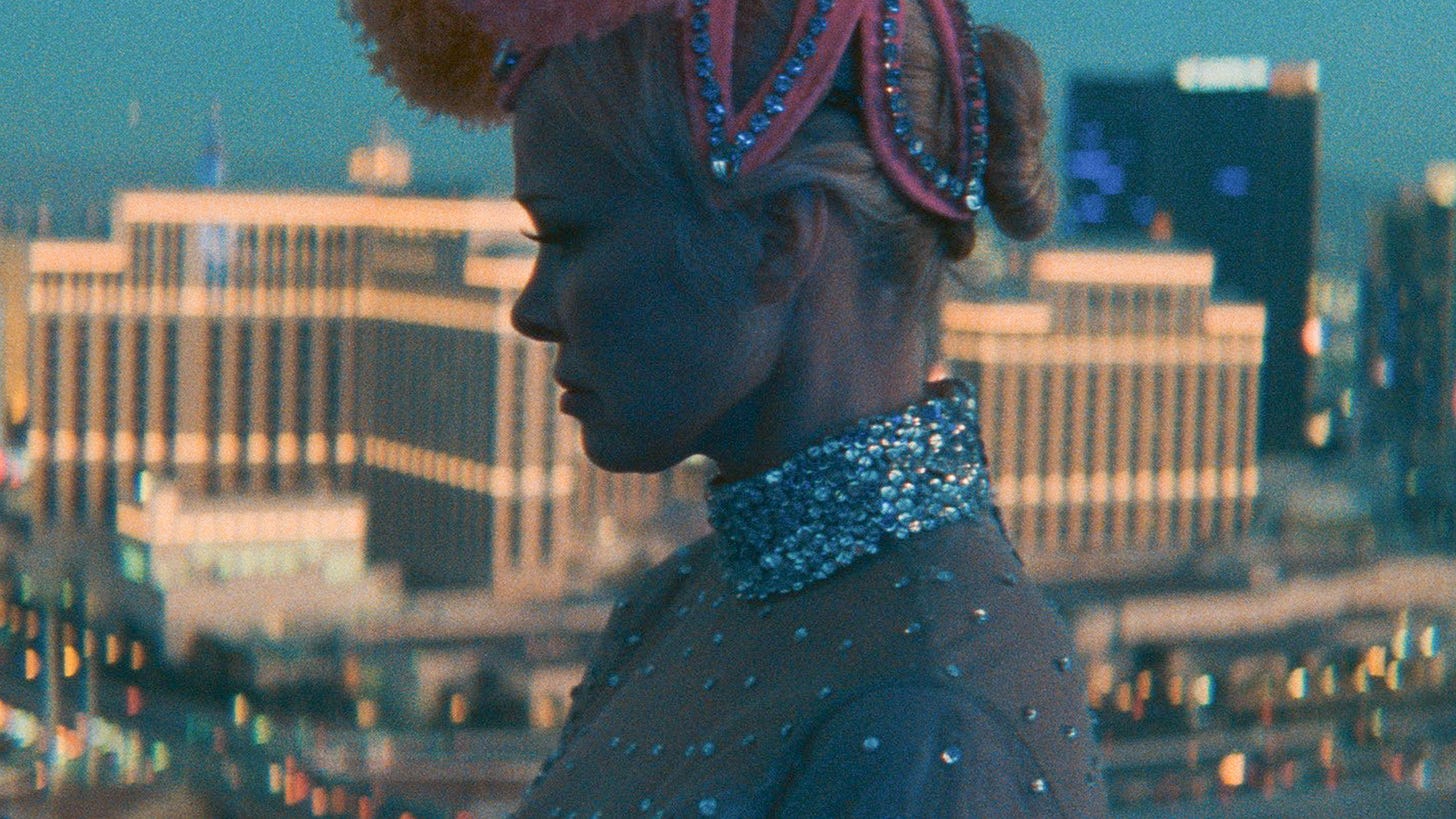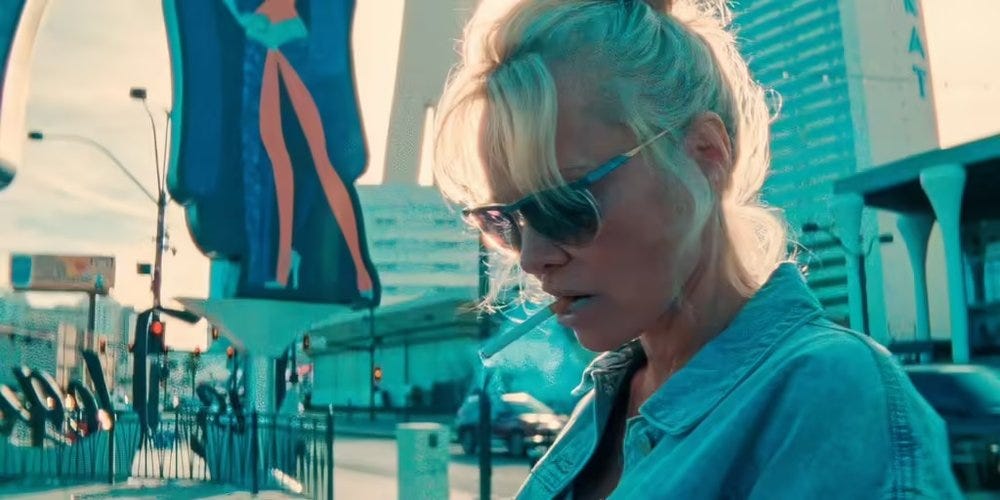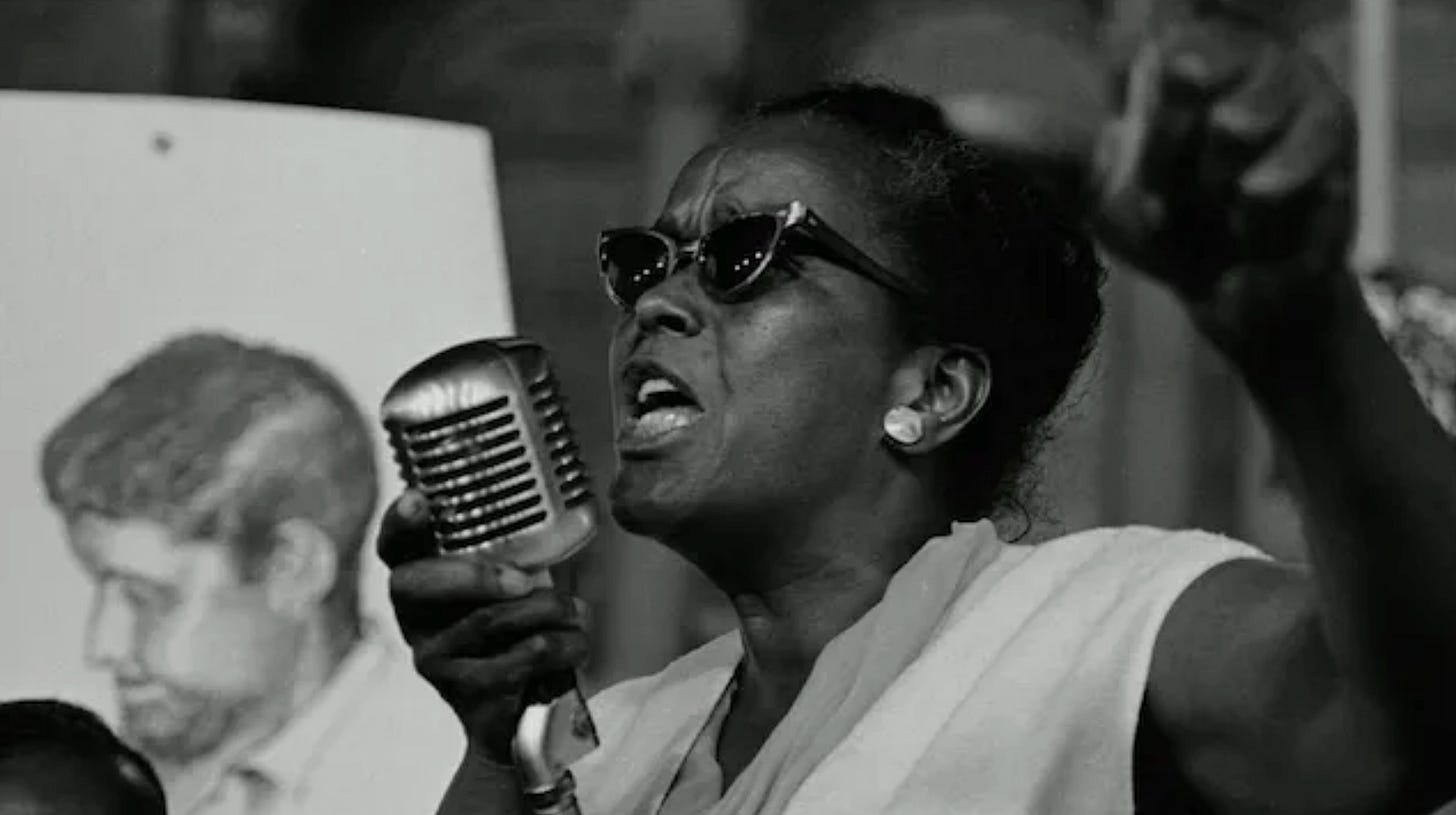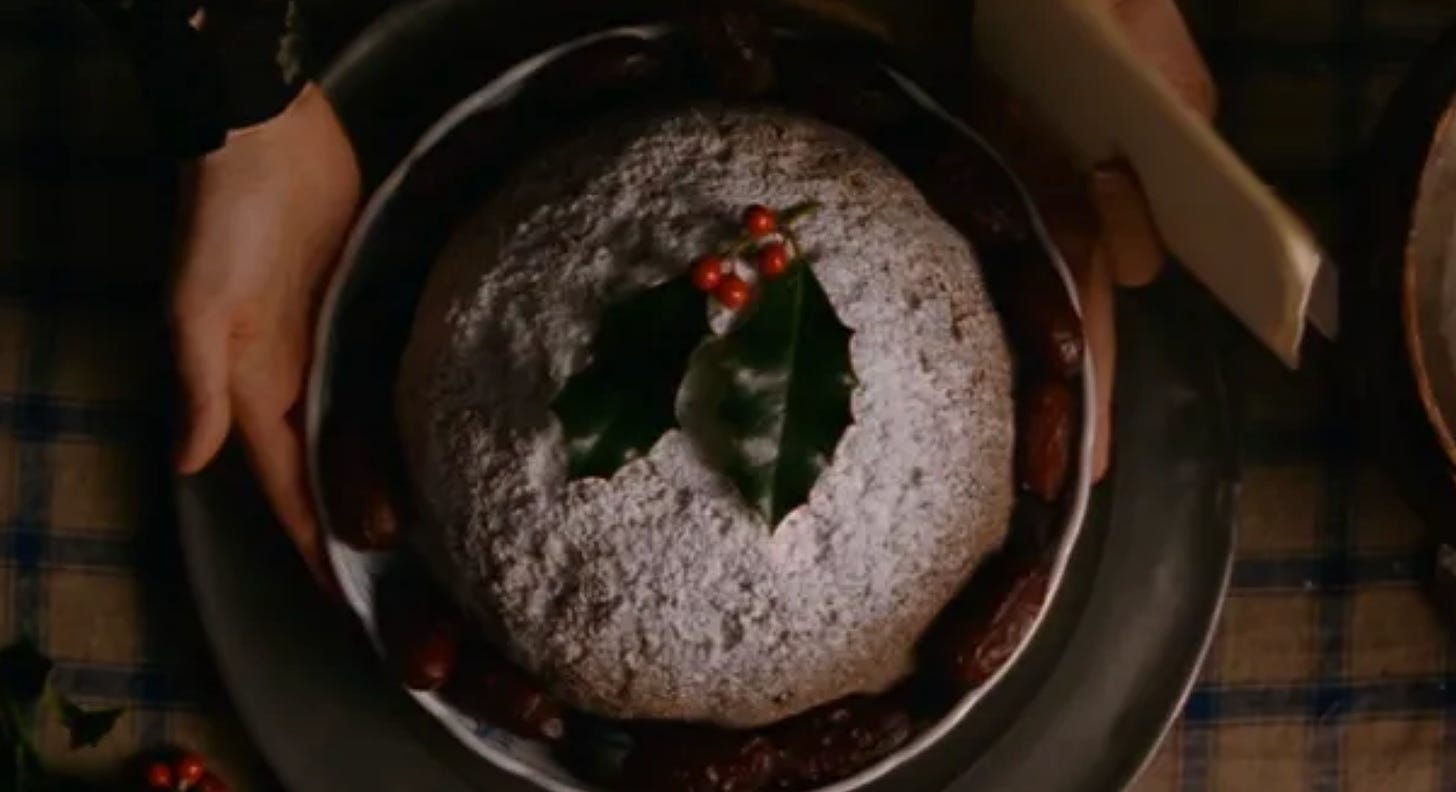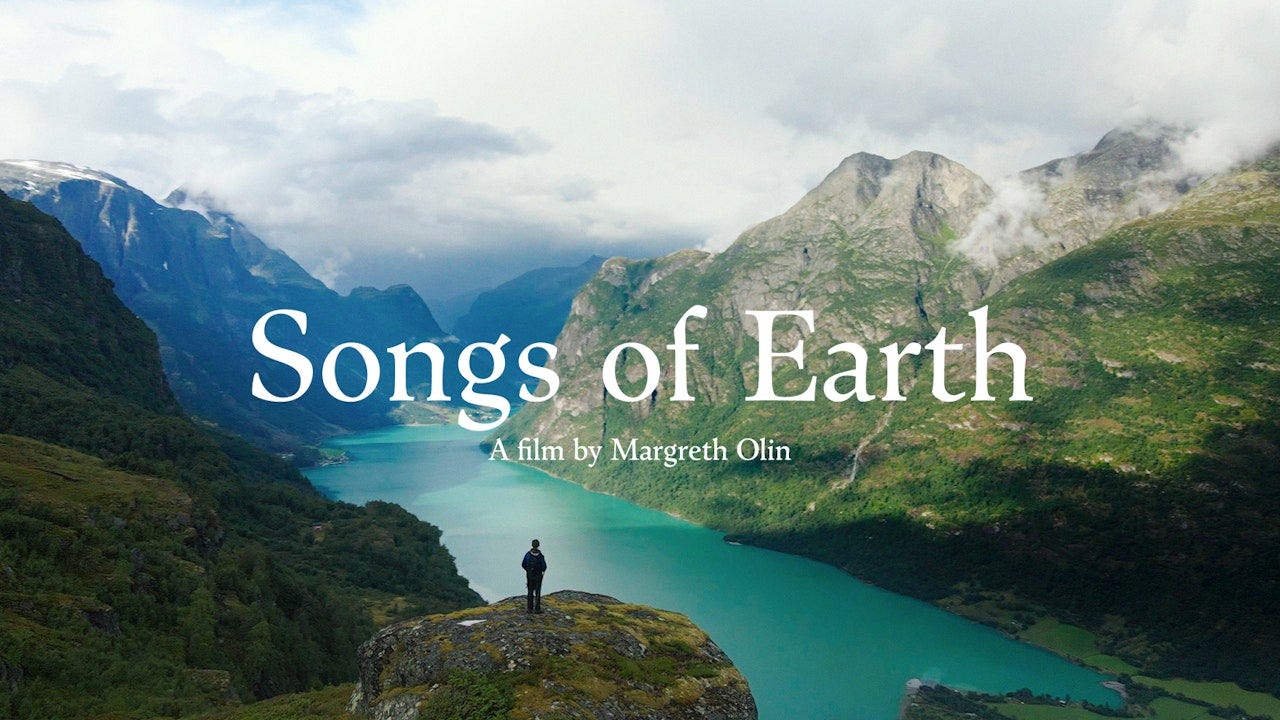This week I am recommending a new drama starring Pamela Anderson giving one of the year’s best performances, a documentary about the late poet Nikki Giovanni, a handful of screenings in New York City, including my favorite film of all time on 35mm, a Norwegian hymn to the majesty of nature, and four Palestinian films screening for free online as part of the Media City Film Festival.
I really loved Gia Coppola’s latest film The Last Showgirl when I saw it at its Toronto International Film Festival premiere. The film focuses on Shelly (a magnificent Pamela Anderson) as the titular last showgirl, who has been with the same revue for decades, during the final two weeks of the show. Shelly, in a word, is spiraling as the world she has built for herself is not-so-slowly crumbling all around her. Here’s a bit from what I wrote out of its premiere:
Shelly has given life to this art, and feels alive in the spotlight, reveling in the power of being seen. She’s 57 years old but knows she’s still beautiful, even if the world tells her she’s not. She’s done her best living for her art, raising a kid in a world that values the work of stage manager Eddie (Dave Bautista), who has a pension and health insurance, which she, despite her decades with the show, does not, more than her art. She’s a legend. She’s the face on the posters. She’s living paycheck to paycheck. Coppola sees the dignity in living for your art. She never pities women like Shelly, or her best friend Annette (Jamie Lee Curtis), a gambling-addicted former dancer turned cocktail waitress. Coppola sees the beauty, in the classical sense, of their art, as it preserves despite the decay all around them
As Shelly, Anderson is a revelation, bringing the same balance of buoyancy and pathos that Judy Holliday brought to each of her roles. Equally as comfortable in the sequins and glitter and gauze of the job as she is going makeup-less on her days off. As with Anderson, Shelly has not been taken seriously as an artist, and sometimes even as a person. When she says, “I’m tired of defending myself” and that she has no regrets about her life’s choices, it’s hard not to see Anderson’s emotional truth shine through Shelly’s words. The Last Showgirl is a film about beauty and truth and love. It broke my heart as much as it uplifted it. Women like Shelly, Pam, and my Great Aunt Zay should never have to defend their existence to anyone.
The film opens for its awards qualifying run in Los Angeles this week and you can attend a few screenings that will include Q&As with Coppola and Anderson at the AMC Century City. It will be opening wider on January 10th. You can find tickets and showtimes here. I also recommend reading Sheila O’Malley excellent review of the film.
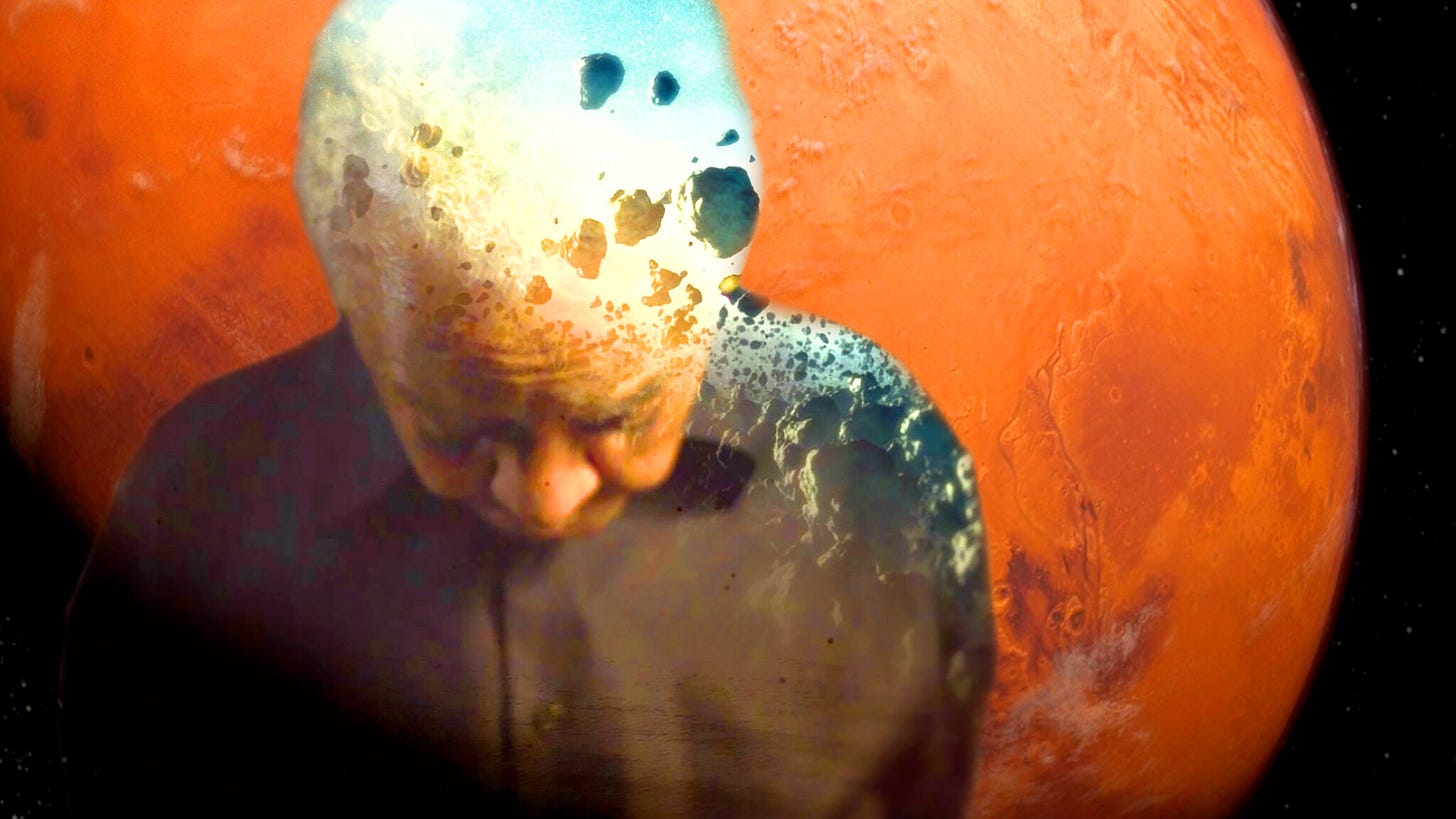
In honor of the late Nikki Giovanni, who passed away at the age of 81 years old earlier this week, I wanted to recommend the documentary Going to Mars: The Nikki Giovanni Project which I saw at Sundance in 2023. Co-directed by Joe Brewster and Michèle Stephenson, the film is as evasive as the poet was herself, bursting with ideas and images and thoughts and philosophical musings, often revealed through Giovanni’s sphynx-like musings. The directors mix intimate vérité footage of Giovanni in her own home with archival footage and visual interpretations of her poetry as she reflects back on her life, her legacy, and what the future could yet still hold. You can stream the film now on Max.
The Metrograph is still cooking. They’ve got four more great films screening this weekend that you should check out if you’re in NYC. In their It Looks Pretty from a Distance series they have programmed Chantal Akerman’s From The Other Side, in which Akerman follows several families who cross the Mexican border into the United States. Akerman keeps the camera firmly planted on the people at the heart of this story, giving them a platform to tell their stories in their own words. The film has only grown in its urgency in the twenty plus years since its release. In their An Alternate Cinema – Five Films from the Deutsche series they are screening Pia Frankenberg’s Ain’t Nothing Without You, which I have not seen but looks fantastic. Frankenberg will be on hand for a Q&A preceding the screening. Filmmakers and curators Micaela Durand and Daniel Chew have programmed Céline Sciamma’s Water Lilies and will be on hand for an introduction. Lastly, as part of their Urban Ghosts series they will be screening Sofia Coppola’s Lost in Translation in 35mm.
Another film screening in New York City that I have not seen but looks amazing is Joanne Grant’s 1981 documentary Fundi: The Story of Ella Baker, which is screening at the Maysles Documentary Center. Narrated by Harry Belafonte, this is the description of the film:
Fundi: The Story of Ella Baker reveals the instrumental role that Ella Baker, a friend and advisor to Martin Luther King, Jr., played in shaping the American civil rights movement. The dynamic activist was affectionately known as the Fundi, a Swahili word for a person who passes skills from one generation to another.
By looking at the 1960s from the perspective of Baker, the "godmother of the Student Nonviolent Coordinating Committee," Fundi adds an essential understanding of the U.S. civil rights movement.
The film is screening tonight and you can get tickets here. The film is also available to rent from Icarus Films on Vimeo.
My all time favorite movie is Gillian Armstrong’s Little Women so I will always be recommending people watch this film, especially if they get a chance to see it on the big screen. The good people at the Museum of the Moving Image have programmed it on 35mm as part of their See It Big: Let It Snow series. We also screened it on 35mm as part of the Chicago Critics Film Festival earlier this year. Here is an excerpt from the piece I wrote about the film for our festival screening:
I first saw this film with my mother during its original theatrical run. I fell in love with the world of this movie. With its complex women, unafraid to pursue their passions or share their opinions; and with its men, who respected and loved the women for their intelligence and independent spirits. I have often said I would not be the woman I am now if not for Ryder's Jo and the path she showed was a possibility for a bookish, tempestuous girl like me. The film was an instant favorite, and has remained my favorite movie for these past thirty years. I suspect it was a foundational text for many other moviegoers of my generation, as well.
You can get tickets for MoMi’s screening here. You can also screen the film on PlutoTV. Also, I have alluded to this a few times, but I spoke to Armstrong about her entire career for her chapter in my book, Cinema Her Way, where she shares some amazing stories about this film’s production. You can pre-order the book here (please support small bookstores or Bookshop!)
I saw Margreth Olin’s gorgeous documentary Songs of Earth, which is executive produced by Liv Ullmann and Wim Wenders, back at the Toronto International Film Festival in 2023 and was definitely drawn into the beauty of the landscapes she captures. I do wish she had spent a little more time with her mother, but this is a loving tribute not just the Oldedalen valley in Norway, but also her 85-year-old father, who acts as the film’s guide. You can stream the film now on Criterion Channel.
This week I’m highlighting four filmmakers whose films I’ve recommended from the Palestine Film Index a few times already this year: Mona Hatoum, Jocelyne Saab, Basma Alsharif, and Razan AlSala. All four filmmakers have a few films streaming for free for the rest of the month thanks to the Media City Film Festival. A Palestinian artist born in Beirut, Hatoum’s films are as poetic as they are political, often pushing the boundaries of both video and performance art. The festival is screening two of her projects from 1988: Eyes Skinned and Measures of Distance. A pioneer of Lebanese cinema, Jocelyne Saab worked as an artist, photographer, filmmaker, producer, and journalist whose body of work gave a voice to the most disadvantaged in her society, especially those living within the Palestinian diaspora. The festival will be screening Beyrouth jamais plus (Beirut Never Again) and Pour quelques vies (For A Few Lives). In her MacDowell biography Basma Alsharif refers to herself as a “nomadic artist and filmmaker born to Palestinian Parents. Raised in France and then the U.S.” Alsharif received an MFA from University of Illinois at Chicago and has honed her voice working in Cairo, Beirut, Sharjah, Amman, and most recently Paris. On her latest work O, Persecuted, the festival writes Alsharif, “turns the act of restoring Kassem Hawal’s militant Palestinian film Our Small Houses (1974) into a performance possible only through film. One that involves speed, bodies, and the movement of the past into a future that collides ideology with escapism. Alsharif diagnoses a troubling uncertainty and disengagement in youth which slingshots from the past to the present day.” Lastly, the festival is screening a new film from Razan AlSalah, whose 2018 short experimental film Your Father Was Born 100 Years Old, and So Was the Nakba is one of the best films I’ve seen all year. Born in Beirut to Palestinian parents, AlSalah received an MFA in Film and Media Arts from Temple University and works in Montréal/Tiotiake, where she teaches Intermedia and Moving Images at Concordia University. Her film A Stone’s Throw uses the story of Amine, a Palestinian elder who has been exiled twice over, to examine the history of Palestinian resistance, particularly shining a light on an incident in 1936 when the oil workers of Haifa blew up a BP pipeline. Like her previous film, AlSalah uses digital technology to explore the blurred lines between the past and present for a people and a culture whose entire existence is continually at risk of being erased completely. You can find a directory of all of the Palestinian films I’ve recommended this year and where to watch them here.
If you enjoyed this week’s free edition of the Directed By Women Viewing Guide, please considering upgrading to a paid subscription and never miss it again:





